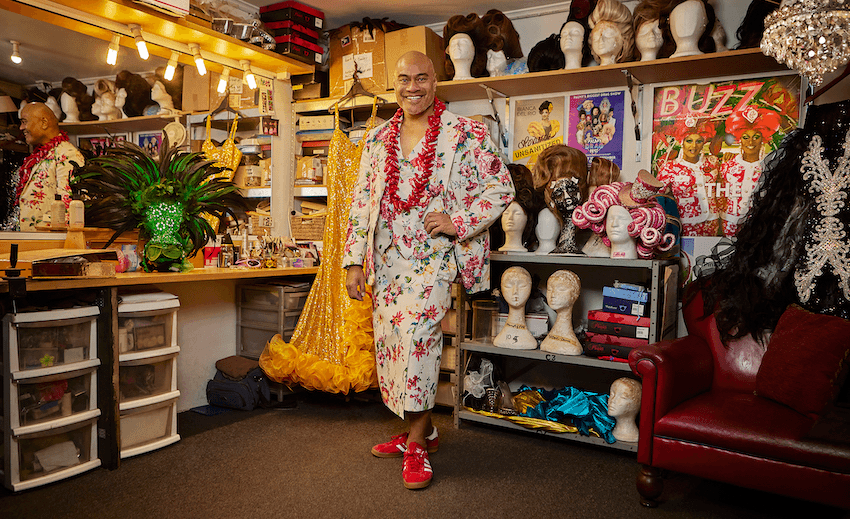A warning has been sounded that the country’s most reliable torrent of untaxed profit may be sputtering out. The situation is critical, writes Hayden Donnell.
Auckland’s housing market has been the subject of thousands of complaints over the years. Prospective home buyers whine that they “have to save up for 45 years to afford a 20% deposit”. Renters moan that they must “live in a plywood shack under a rich person’s toilet”. Spinoff writers grouse they’ve been forced to “move to Christchurch”. Thankfully through it all property investors have continued to make millions of dollars in ever-increasing capital gains.
That is, until now. Earlier this week, RNZ issued a solemn warning that the country’s most reliable torrent of untaxed profit may be sputtering out. Under the headline “The problem with Auckland’s housing market”, it said a townhouse building boom had been spreading a poisonous mist of affordability over Auckland’s usually thermonuclear property sector. The story quotes a diverse array of people, from landlords to real estate agents, and all say the same thing: houses aren’t selling for what they used to. Some might even be going for, and you’ll have to excuse me here while I become violently ill, bargains. This isn’t some hollow threat. The situation is critical. It may soon get to the point where you can’t sell a rotting Grey Lynn bungalow for $4.6 million.
Property investor Steve Goodey has seen the horrors first-hand. He recently bought a two-bedroom apartment in Epsom and says an “oversupply” of housing means buyers like him might be saving thousands of dollars. “Look at how many two-bedroom townhouse listings there are in south Auckland, it’s nuts. Developers are doing many deals right now,” he told RNZ.
CoreLogic chief property economist Kelvin Davidson agreed the influx of townhouses enabled by Auckland’s 2016 Unitary Plan may be sucking cash out of our investors’ profit vat. “There’s always been a perception that Auckland leads the rest of the country in terms of property market performance, and although the evidence shows that isn’t always the case, it’s certainly still pretty striking that our largest city is now seeing renewed weakness in prices,” he said.
It’s got to the point where, in the words of Barfoot and Thompson managing director Peter Thompson, prospective buyers have “a lot more choice and time to make a wise decision”.
Devastating. If this keeps up, Auckland may never become a city where home ownership is the exclusive preserve of the rich. We might not even see the creation of a new landed gentry. People might be able to do things like hang a painting on the wall or own a pet without getting their landlord’s permission. They could perhaps find a place that suits their needs close to work. Some might even change their commute to public transport or, god forbid, walking or biking.
Just to press this home, if housing is affordable, we may see large reductions in hallowed New Zealand traditions like homelessness or ram raids. People might be able to fork out less than 50% of their income on rent and instead spend it on goods and services. Some might invest in the productive economy. We may see fewer overcrowded garages or children going to hospital from preventative respiratory illnesses. It’s possible that, if this problem gets really out-of-control, we will no longer see entire families living in cars. Can you imagine?
Thankfully our elected representatives are working out how to halt this plague’s spread. They recently voted to stop dense housing being legalised along major public transport corridors and close to town centres. Forbidding apartments near the train lines we’re spending $5.5 billion upgrading is a good start, but it’s unlikely to be enough to fully rid us of the affordable housing infection. There’s capacity left in the Unitary Plan for more building, and with housing minister Chris Bishop still talking about allowing construction, property may remain stubbornly attainable.
Hopefully Auckland’s councillors and planners can work more of their trademark magic. The god-given right of our property owners to receive hundreds of thousands of dollars every few years for doing nothing and contributing little of value rests heavy on their shoulders. Of course there may be some victims. Renters, the unhoused, and anyone earning less than $200,000 could suffer. But just like RNZ, I assume none of those grotty people are reading this article.



